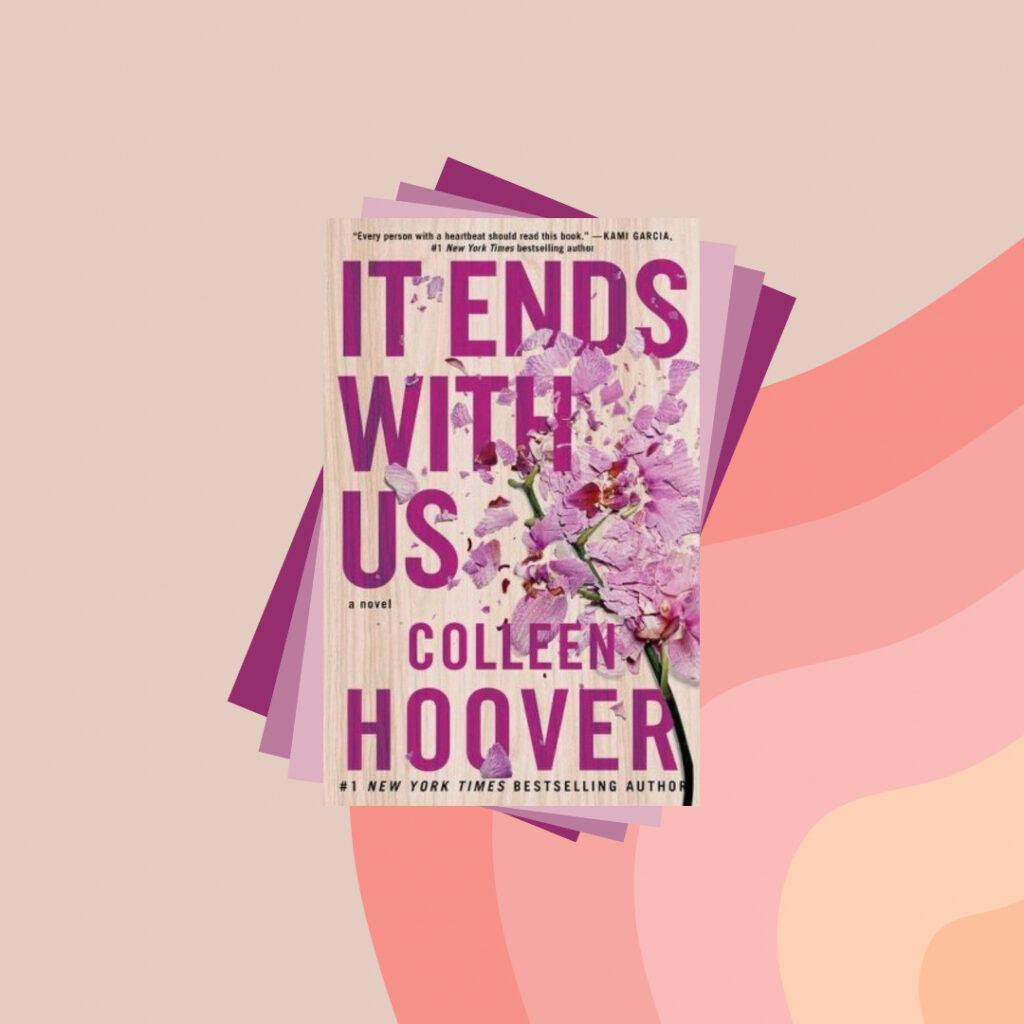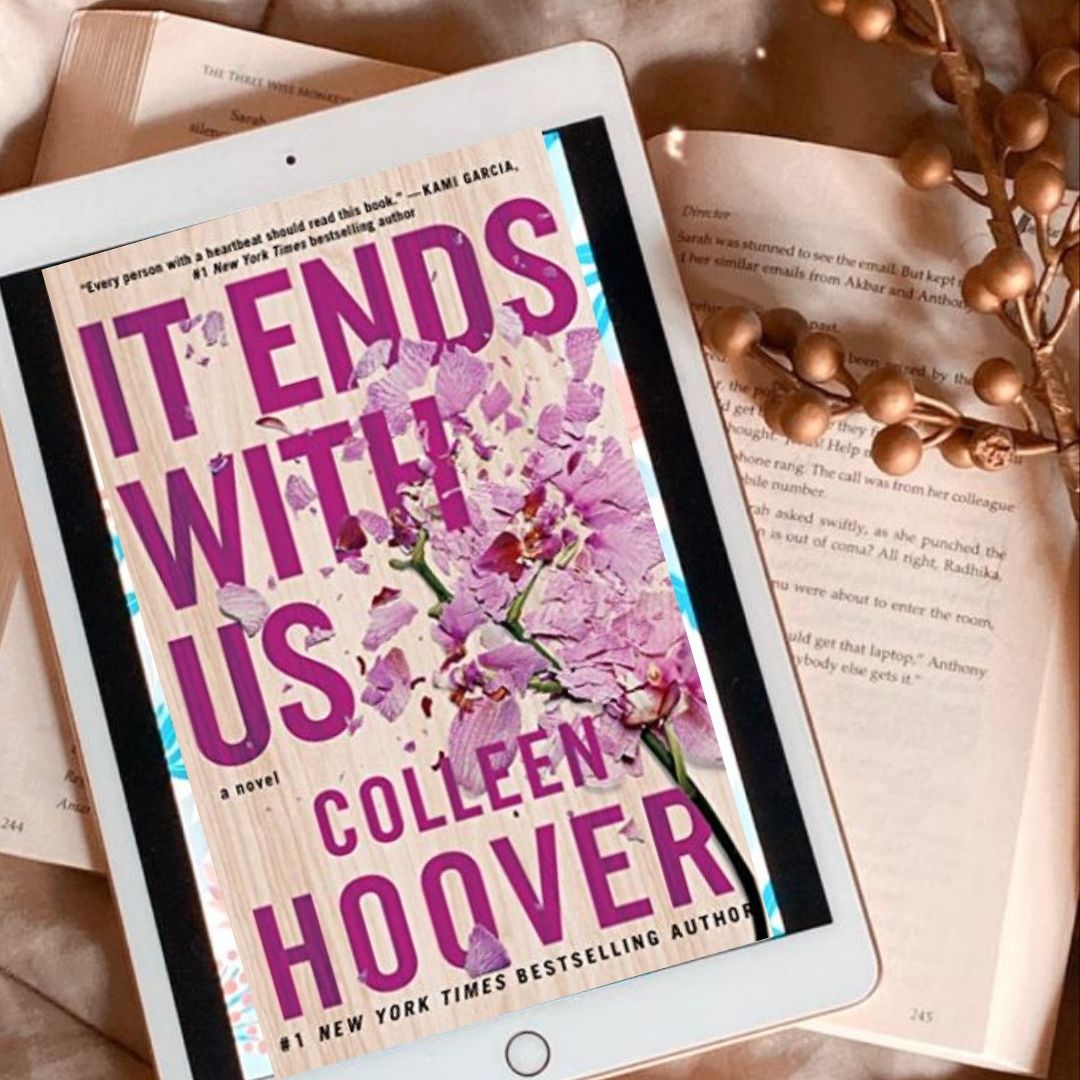Who It Ends With Us Book Review: A Guardian Perspective
Related Articles: Who It Ends With Us Book Review: A Guardian Perspective
Introduction
With great pleasure, we will explore the intriguing topic related to Who It Ends With Us Book Review: A Guardian Perspective. Let’s weave interesting information and offer fresh perspectives to the readers.
Table of Content
Who It Ends With Us Book Review: A Guardian Perspective

Colleen Hoover’s Who It Ends With Us has become a modern literary phenomenon, captivating readers with its compelling narrative of love, loss, and resilience. The Guardian, a renowned British newspaper, has reviewed the novel, offering insightful analysis of its strengths and weaknesses. This article aims to provide a comprehensive exploration of the Guardian’s perspective on Who It Ends With Us, examining its key themes, character development, and overall impact.
The Guardian’s Review: A Summary
The Guardian’s review, while acknowledging the novel’s undeniable popularity, offers a nuanced critique of its narrative structure and character portrayal. The reviewer highlights the book’s emotional intensity, particularly in its exploration of domestic abuse, but also questions the romanticized portrayal of the main character’s relationship with her abuser.
The review emphasizes the novel’s ability to evoke strong emotional responses in readers, but also raises concerns about its potential to trivialize the complexities of domestic abuse.
Exploring the Guardian’s Critique
The Guardian’s review focuses on several key aspects of Who It Ends With Us:
1. The Power of Narrative and Emotional Impact:
The review acknowledges the novel’s ability to engage readers emotionally. Hoover’s writing style, characterized by vivid imagery and introspective dialogue, effectively conveys the protagonist’s internal struggles, making the reader deeply invested in her journey.
2. The Complexity of Domestic Abuse:
The Guardian’s review touches upon the sensitive issue of domestic abuse, recognizing its portrayal as a central theme in the novel. The reviewer acknowledges the book’s ability to raise awareness about this issue but also expresses concern about the romanticized portrayal of the relationship between Lily and Ryle, the abusive character.
3. Character Development and Moral Ambiguity:
The reviewer analyzes the development of the main character, Lily, highlighting her internal conflicts and the challenges she faces in navigating her relationships. The review also explores the complexities of Ryle’s character, acknowledging the novel’s attempt to depict him as more than just a villain.
4. The Role of Redemption and Second Chances:
The Guardian’s review delves into the novel’s exploration of redemption and second chances. The reviewer examines the protagonist’s journey towards healing and her search for a fulfilling relationship after experiencing trauma.
5. The Appeal of the "Boy Next Door" Trope:
The reviewer acknowledges the novel’s use of the "boy next door" trope, highlighting its appeal to readers. The reviewer also explores the potential for this trope to create unrealistic expectations about romantic relationships.
Related Searches and FAQs
1. Who It Ends With Us Ending Explained:
The ending of Who It Ends With Us is a major point of discussion among readers. The Guardian’s review does not explicitly address the ending, but it does raise questions about the novel’s message concerning redemption and forgiveness. The ending is open to interpretation, leaving readers to contemplate the implications of Lily’s choices.
2. Who It Ends With Us Book Review Goodreads:
Goodreads, a popular platform for book reviews, offers a diverse range of perspectives on Who It Ends With Us. Readers express a wide range of opinions, from praising the novel’s emotional impact to criticizing its portrayal of domestic abuse.
3. Who It Ends With Us Book Review New York Times:
The New York Times, another prominent publication, has also reviewed Who It Ends With Us. The review, similar to the Guardian’s, acknowledges the novel’s popularity but also raises concerns about its handling of sensitive themes.
4. Who It Ends With Us Book Review Amazon:
Amazon, a major online retailer, offers a platform for customer reviews, providing readers with a vast array of perspectives on Who It Ends With Us. The reviews reflect a wide range of opinions, with many readers expressing strong emotional responses to the novel.
5. Who It Ends With Us Book Review Spoilers:
Numerous websites and blogs offer spoiler-filled reviews and analyses of Who It Ends With Us. These reviews often delve into the details of the plot and character development, providing readers with a comprehensive understanding of the novel’s narrative.
6. Who It Ends With Us Book Review Summary:
Several online resources provide concise summaries of Who It Ends With Us, outlining the key plot points and themes. These summaries can be helpful for readers who are unfamiliar with the novel or seeking a quick overview of its content.
7. Who It Ends With Us Book Review Quotes:
Many online resources offer quotes from Who It Ends With Us, providing readers with a glimpse into the novel’s language and style. These quotes can be used to gain a deeper understanding of the characters and their relationships.
8. Who It Ends With Us Book Review Discussion:
Numerous online forums and social media groups dedicated to Who It Ends With Us provide a platform for readers to discuss the novel and share their perspectives. These discussions can offer valuable insights into the novel’s impact and its interpretation by different readers.
Tips for Reading Who It Ends With Us
- Be Prepared for Emotional Intensity: The novel delves into sensitive topics like domestic abuse and grief, which can be emotionally challenging for readers.
- Consider the Context: The novel’s portrayal of domestic abuse should be viewed within the broader context of the author’s intent and the complexities of the issue.
- Engage in Critical Analysis: Read the novel with a critical lens, analyzing the characters, plot, and themes to form your own interpretations.
- Seek Support if Needed: If the novel’s themes trigger personal experiences or anxieties, consider seeking support from a trusted friend, family member, or mental health professional.
Conclusion
The Guardian’s review of Who It Ends With Us offers a valuable perspective on the novel’s strengths and weaknesses. While acknowledging its emotional impact and ability to engage readers, the review also raises concerns about its romanticized portrayal of domestic abuse and its potential to create unrealistic expectations about romantic relationships.
Ultimately, the novel’s success lies in its ability to evoke strong emotional responses in readers and spark meaningful conversations about love, loss, and resilience. The Guardian’s review, along with other critical analyses, encourages readers to engage with the novel critically, considering its complexities and its potential impact.








Closure
Thus, we hope this article has provided valuable insights into Who It Ends With Us Book Review: A Guardian Perspective. We hope you find this article informative and beneficial. See you in our next article!